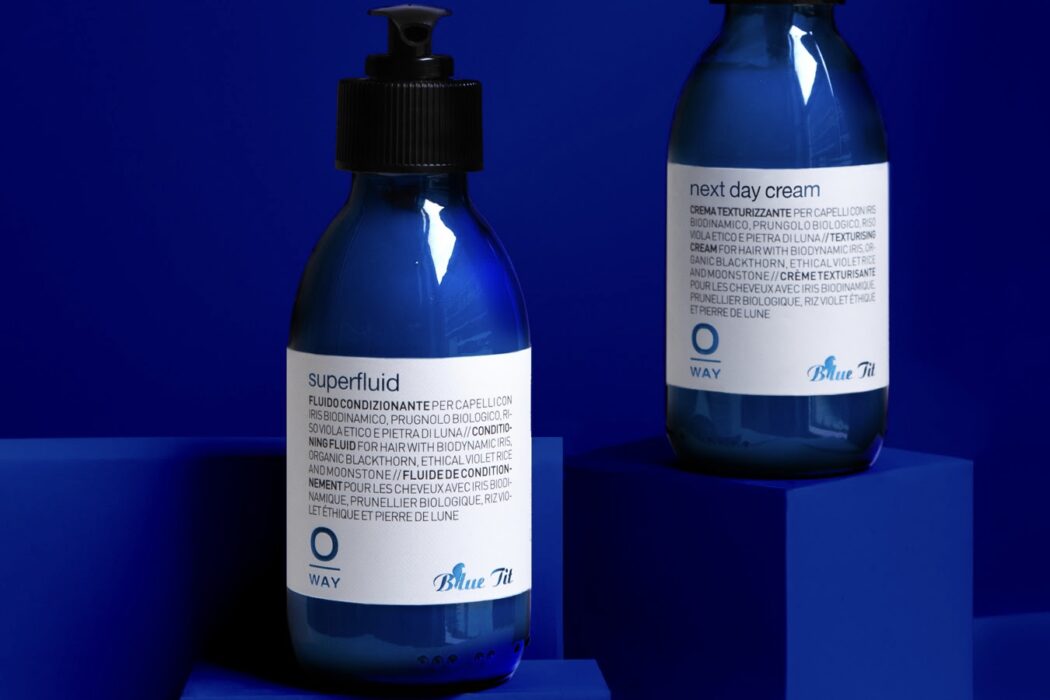I’ve spoken many times over the undulating course of the last year about Covid and its effect on the industry I not only work within, but love dearly. More than just survival, the stirring efforts made by so many across beauty and wellness to bring their customers closer to their brand is something that deserves celebrating in itself. To change a business model that hasn’t really changed in decades (and for good reason – a close-contact service does, by its nature, require close-contact), and so quickly, requires quick wits, ingenuity and (I’m very sure) a lot of effort and stress.
READ THE FEATURE HERE IN THE SPRING ISSUE
For the loyal customer, online consultation, video chat, and new products have granted some access to the, let’s say, ‘time-sensitive’ top-ups to regular specialist services. Enter Peacci’s Gel Removal & Nail Nutrition Kit for removal of salon nail finishes at home, care-free and safely. Or to help the time pass until the full salon experience, Fudge Professional’s Clean Blonde Damage Rewind shampoo and conditioner bundle, which I can recommend as, by far, the best home option to keep blonde tones fresh with longer spans between colour appointments.
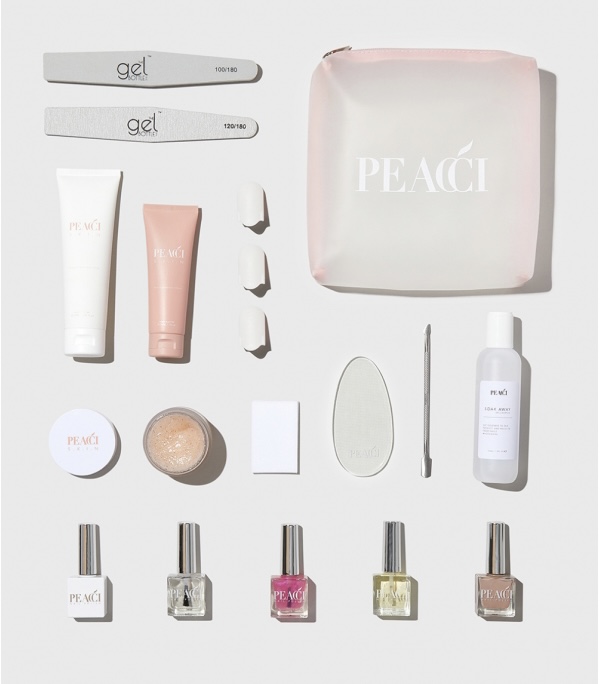
Peacci -Gel Removal & Nail Nutrition Kit
But if we take a closer look behind the curtain of this performance, removing any smoke or mirrors, how has the industry actually coped during this time? You may have missed a few barber appointments, a handful of waxes or a couple of lash infills, but overall beauty, hair and holistic businesses were closed for over 140 days in 2020 alone. Factoring in our ongoing lockdown in the UK, this has been catastrophic for some. The Local Data Company has estimated that 4,700 businesses in the sector closed their doors permanently during this time, equating to around 10% of the entire industry.
For others, it has been nothing less than extremely challenging in other ways. The British Association of Beauty Therapists and Cosmetology (BABTAC) represents a sector that totalled £27.7 billion in consumer spending in 2018 – twice that of car manufacture in the UK. To better support the industry in its recovery, their most recent letter to Rishi Sunak, regarding the Spring Budget, called for a reduction in VAT to 5%. Particularly important, considering these businesses have had no sector-specific financial support from the central government.
One huge step forward in this period, following what BABTAC described as a “steadfast strategic campaign” is the success of Make Beauty Safe. Having worked alongside the British Beauty Council, the UK Spa Association and the National Hair & Beauty Federation, the movement has taken what has previously been an under-regulated industry concerning training, to a sector with governmental support. As previously warned by the Chartered Institute of Environmental Health, “the existing legislation available to most local authorities in England and Northern Ireland to regulate this sector is no longer fit for purpose.”

Fudge Pro – Clean Blonde Damage Rewind
However, as of January 2021, the industry has the support of a sector-specific team within government, purely for personal care. Lesley Blair, CEO and Chair of BABTAC and Confederation of International Beauty Therapy and Cosmetology shared, “[it’s] a huge milestone and the direct result of the dedication, passion and cooperation of the four key industry organisations and BEIS [Department for Business, Energy and Industrial Strategy] over the challenges of the past year. As one of the largest contributors to the UK economy, our sector deserves to have a strong dedicated voice in government… we look forward to the opportunities and credibility this will provide our industry going forward.”
But overall, suffering from such a reduction in revenue for so long has hit the industry hard. As a backbone to the industry and a lifeline to many for their ongoing guidance and support throughout the pandemic, BABTAC’s research has shown that one in four businesses will be at risk of bankruptcy. Those at further risk include 12,300 VAT-registered businesses who, despite making 30% of the sector, employ half the workforce within the industry. This doesn’t include the 200,000 women whose businesses or sole-trader ventures do not meet the VAT threshold.
So, while I sat desperately missing my colourist counting my ever-increasing greys on my behalf, and wishing my partner worked in massage instead of private investigation, I decided to reach out to a few friends and colleagues in the field to see how they have traversed the last year.
Thinking about hair, I spoke to Matt Gebbie, director of the award-winning boutique London hair salon, Blue Tit, who took a moment to share some beautiful insight into life outside of the salon while juggling homeschooling. With ten shops across the city and the 12 April reopening date (as it currently stands) tantalisingly close, how has the last year changed business for them?
“The start of the pandemic was incredibly hard – the toughest challenge we have ever had to deal with as a business. It was the uncertainty about not knowing what support we would get and it tested us a lot,” Matt explained. “The downtime also gave us the opportunity to look inwards at the company, restructure and give people new opportunities to grow. We implemented a Diversity Roadmap into the business and as part of that progress, hired an Afro and Textured Hair Educator, Sharley Butcher. We also hired a wellbeing manager, Harriet Franks, and honed in on our academy.”
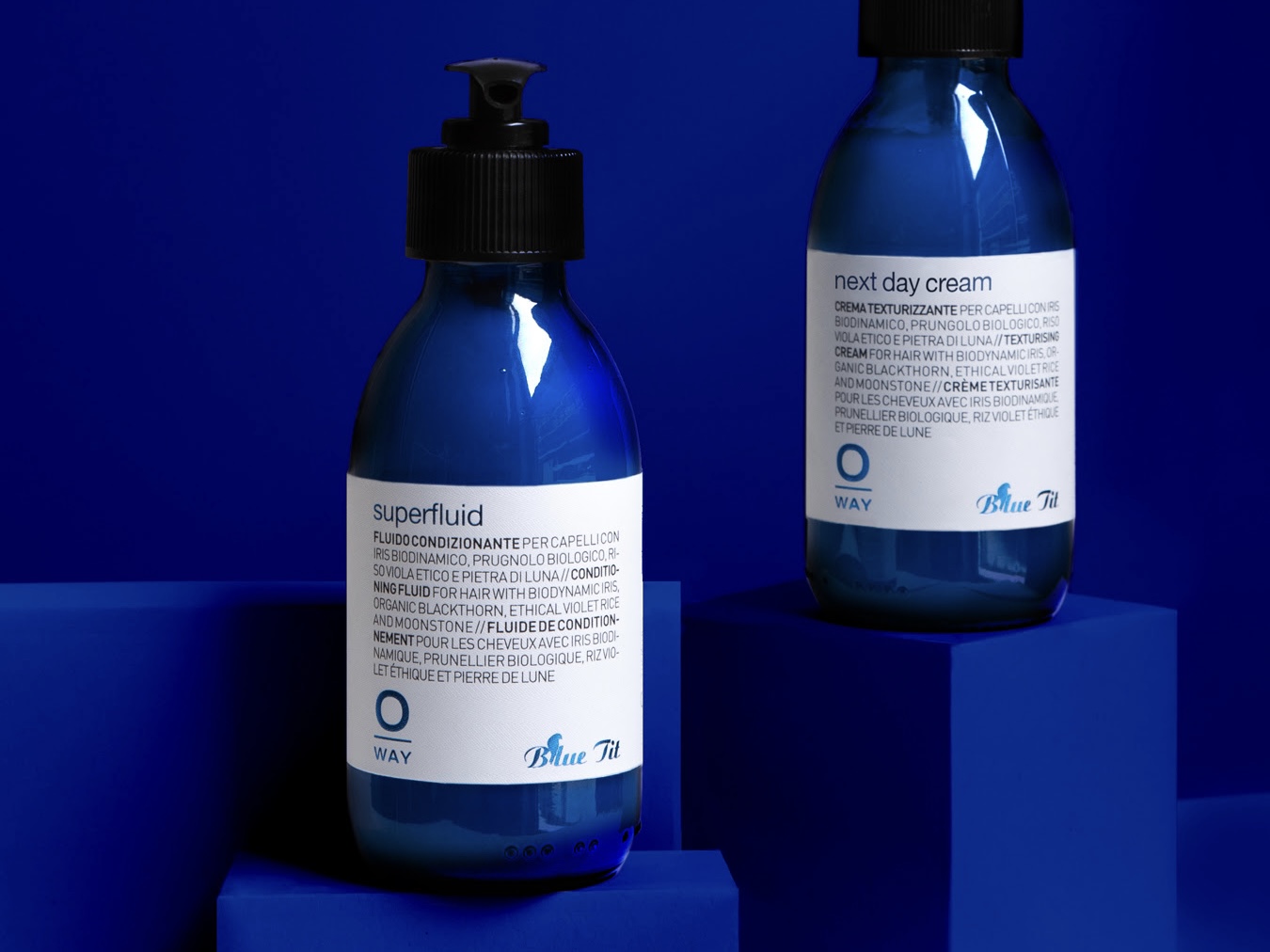
Oway x Blue Tit
And how about online retail, or social opportunities? Matt went on to share, “With the salons closed, it also gave us more time to work on and launch our own products in partnership with Italian haircare brand, Oway, Superfluid and Next Day Cream and drive sales of these through our online shop. While online sales were boosted, our greatest achievement was the phenomenal feedback we received – from influencers and journalists, but also from the salons that it is stocked in. It has been so humbling.”
Unlike some salons, Blue Tit retained all their staff throughout. “Overall I think our strongest lessons have been to put your staff first and have a positive mindset. We have stuck to our guns, kept our staff close and put positive thoughts out into the world and it has come back in our favour,” Matt mused.
Taking positives from a tough year shows extreme resilience. But what about when you’re a fledgeling brand? I reached out to Shane Carnell-Xu and Jake Xu, twin brothers and the founders of leading men’s cosmetic brand, Shakeup Cosmetics, to see how the first year since their September 2019 launch had gone, in the wake of so much change.
Jake explained, “I think it’s safe to say that it’s been a year that no one could have foreseen or predicted! The first lockdown happened only three months after we had spent three weeks travelling around the country to promote our brand in every Harvey Nichols store in the UK and Ireland.” But as a self-professed niche category, it wasn’t all smooth sailing. Jake continued, “We saw a sharp decline in demand in our category overnight. However, as lockdown went on, the interest in our products and sales gradually picked up, online of course.” Shakeup felt the effects of the exploration of self-care in the movement to working from home. Jake explained, “What better time to try a new product, or a new way to look and feel [your] best?”.
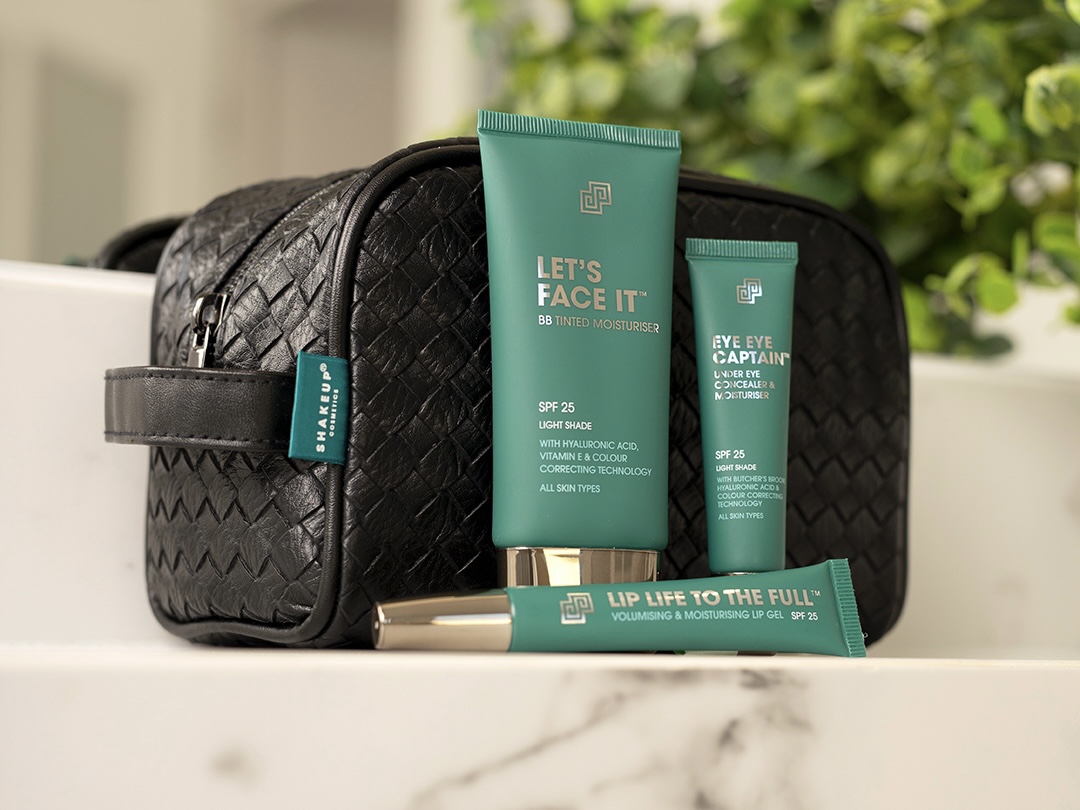
Shakeup Cosmetics – The Travellers Set
Their newest launch, The Travelers Set, is the perfect bundle to try out their full range, whilst ensuring you’re ready at a moment’s notice to slip away for a break as soon as possible. But did the events of 2020 change the direction of their plans for the business, or launches? Jake shared, “One of our favourite sayings that was often quoted by our investor Sally Preston MBE, was that ’when the world zigs, you zag’. In business, there are many ‘oh shit’ moments. It’s how you deal with them that counts.”
“We had our eyes set on international markets from day one, and Asia was a key market space for us, especially China. Being Chinese-British, we had a front-row seat in witnessing the redefinition of men’s beauty.” Jake confided, “Launching into China can be very daunting, risky and expensive for many western brands, but with our language skills and deep understanding of the culture, consumer behaviour and the social landscape in China, we had the advantage that enabled us to move fast. So, while the UK slept, we launched our flagship store on China’s biggest cross-border e-commerce platform, TMall, a process that usually takes up to a year, took us only four months from beginning to launch.”
Between that and their launch this year into Superdrug, their hero product Let’s Face It BB Tinted Moisturiser is currently selling at a rate of one every six minutes globally. With years spent face-to-face with customers at the counter under my brush belt, I was intrigued: from their point of view, what is the future for online beauty retail?
“We actually don’t think the brick-and-mortar beauty retailers are going anywhere. Products that have a certain texture, colour shade or fragrance will always sell better when the customer has had a chance to try them in person. Having said that, Covid has helped online businesses massively over the past few months. As they say, it takes 66 days for a new habit to take root. Having gone through the past year, more people will be shopping online from now on, even after the lockdown is lifted.”
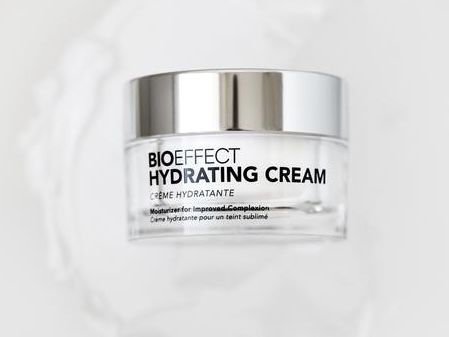
BIOEFFECT – Hydrating Cream
With so many working at home, self-care moments have been at an all-time high. I was lucky enough to speak with Dr Bjorn, co-founder and Chief Scientific Officer of clean-beauty-pioneering, science-led skincare brand, BIOEFFECT. Based in Iceland, the brand’s range was built upon state-of-the-art bioengineering, involving the replication of EGF (epidermal growth factor, the body’s trigger to repair itself) using barley. As the first and only brand with plant-based growth factors, did the impact of Covid reach something so specialist?
Dr Bjorn reassured, “Even though we have enjoyed the benefits of living on an island, the global pandemic has undoubtedly been a challenge for us.” Their EGF barley production uses an unparalleled geothermal system, noted Dr Bjorn, ensuring a constant supply throughout the pandemic. He explained, “It is a high-tech ecologically engineered greenhouse located in the middle of a lava field”, and as such, handily allows staff to socially distance with ease. Dr Bjorn continued, “Our complex nourishing system waters and monitors the barley plants.”
Their newest product, and a must for the skincare connoisseur, is their deeply moisturising, yet light-as-water Hydrating Cream which launched during the pandemic. “We developed and manufactured the product from start to finish in Iceland, like we do for all BIOEFFECT products.” Although he admits there were some challenges, the release went direct to online without significant delay: “This was made possible because of the total commitment and dedication of our BIOEFFECT team, from R&D to production and marketing, that lived by the motto ‘We are going to make this happen no matter what!’”
But this wasn’t the only 2020 launch. Their first flagship store in Reykjavik was unveiled just weeks before the pandemic took hold. Dr Bjorn elaborated, “Luckily we have been able to avoid total store lockdowns here in Iceland and therefore we have managed to keep our store doors open for the public. We have hosted smaller events in the store whenever possible, strictly complying with Covid restrictions, where we have been able to treat our customers to expert advice”.
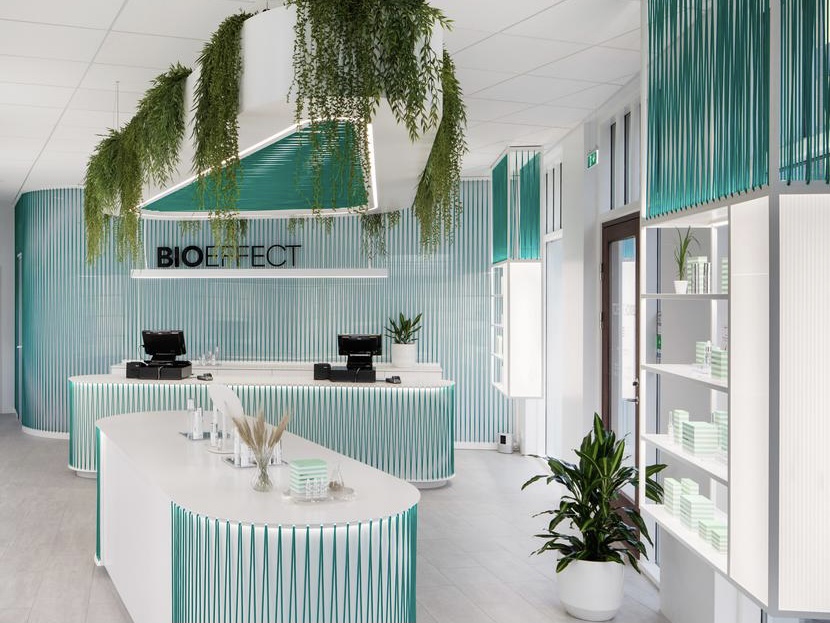
BIOEFFECT – Flagship Store
So many brands have given generously to their community over this time, and continue to do so even over a year on from the start of our first lockdown. On seeing our nurses suffering from the drying effects of hand gel, Faith in Nature gave away hundreds of cases of products (including soaps and hand-creams) direct to hospitals and cancer centres across the country, and skincare brand Faace donated thousands of pounds worth of their skincare masks to NHS frontline workers. Meanwhile, London-based perfumers Miller Harris donated over £150,000 of stock to Age UK, to support some of the most vulnerable members of our society.
And it didn’t stop there, with brands helping customers to give back too. As rainbows became synonymous with our frontline carers, nail care brand Peacci launched their Rainbow Kit and donated £5 from every kit sold to charities supporting NHS workers. And right now, Legology has teamed up with the Greenham Trust on their Laptops for Lockdown Learning fund, supporting children’s education at home during remote learning. With every sale of their Limited Edition Holiday-At-Home Candle, Legology will donate £10 towards the purchase of digital devices for disadvantaged pupils, and the Greenham Trust will directly match this donation.
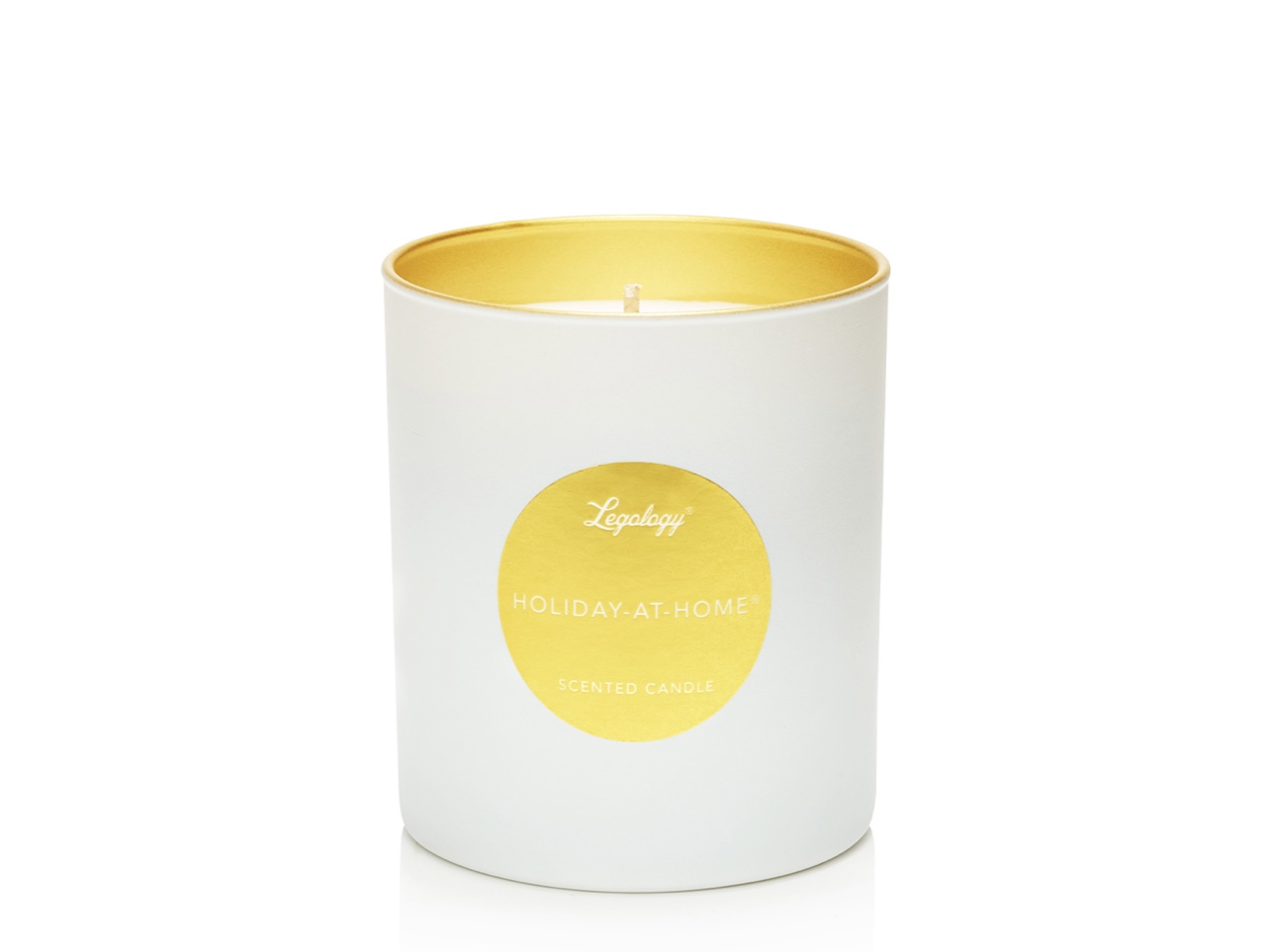
Legology – Holiday At Home Candle
When it comes to success with online business models, consumer demand and pivoting, you can’t ignore the wellness side of the industry. After all, who hasn’t picked up an online class over the last months? I spoke to Charlotte Holmes, whose diverse career in fitness I have followed, supported and admired for many years now. A professional model and former Miss England, Charlotte is a yoga teacher, group fitness instructor and personal trainer. She appeared in Britain’s Next Top Model (where she finished third after being told by one of the judges she wasn’t slim enough to be a model) and later appeared on MTV’s Ex On The Beach: Body SOS, as one of the lead personal trainers.
“Pre-Covid, I was a freelancer, teaching weekly classes across London and filming classes for FiiT. I also hosted live classes on my IGTV about once a month,” says Charlotte. No stranger to the studio setting, she has worked across boutique studios in London including Lift, Psycle and Another Space, and has taught internationally at fitness festivals and retreats for many years.
Fast forward to 2020 and she joined Virgin Active UK as Head of Yoga. “Now, I’m working full time. I have the most wonderful team and am so excited to be working with them to bring quality yoga classes and education to the commercial gym space.”
But even with the ability to pivot, how might the fitness and wellness industry have suffered differently from any other area? “Firstly, like everyone else we’ve lost ‘human connection’. The ability to physically connect with clients and members of our gym community is something that, I believe, is vital for mental health and development. Not only is physical touch and connection a serotonin booster, but touch cues can help ensure movements are being executed properly. This method is key in promoting correct form and habits so that the most is gained from the movement, it also helps to limit injury. Secondly, teaching online is a totally different ball game from teaching in person. Your cues have to be specific and understandable – a lot of the time you can’t see who you are teaching!”

Virgin Active UK
With this in mind, I was intrigued to know how the industry has adapted. “I’ve found adapting to the digital space relatively smooth and thoroughly enjoyable. I was one of the founding trainers with FiiT”, that is, way back in 2017, before all classes had to be online. “It’s been a really wonderful way to connect with my Instagram audience and give something back when people are at home going through potentially challenging and difficult times. Covid has forced us apart, but in some ways, the online fitness world has managed to keep us all connected and together.”
So where does that leave the fitness industry now? Charlotte mused, “It’s going to be tough, as it is for many industries but I believe that we will bounce back. Many people have taken on new fitness regimes and picked up new habits with exercise and they will want to continue that when the gyms reopen. We are lucky to now have our Virgin Active Online+ Membership growing so even after the gyms open, people have the option to train with us at home or wherever they are going forward!”
With new routines forming (and bad habits not far behind), I had already been looking at alcohol-free alternatives to some favoured at home tipples. I reached back out to Rob Fink, CEO and Founder for Big Drop, leaders in the AF craft beer market. Firstly, curiosity got the better of me. Was there a reason why they had taken the AF-only route when no other brewers had?
Rob explained, “I quit drinking for 6 months after I had my first son in 2014.” But working in business development, his days often involved client lunches. “I ended up thinking ‘why should people not drinking alcohol, for whatever reason, be forced to drink a sub-standard beer?’” The idea for Big Drop was born: “Generally, if something’s never been done before, there’s a reason! However, I knew that there had always been a market for non-alcoholic beer – it just hadn’t been very good beer.”
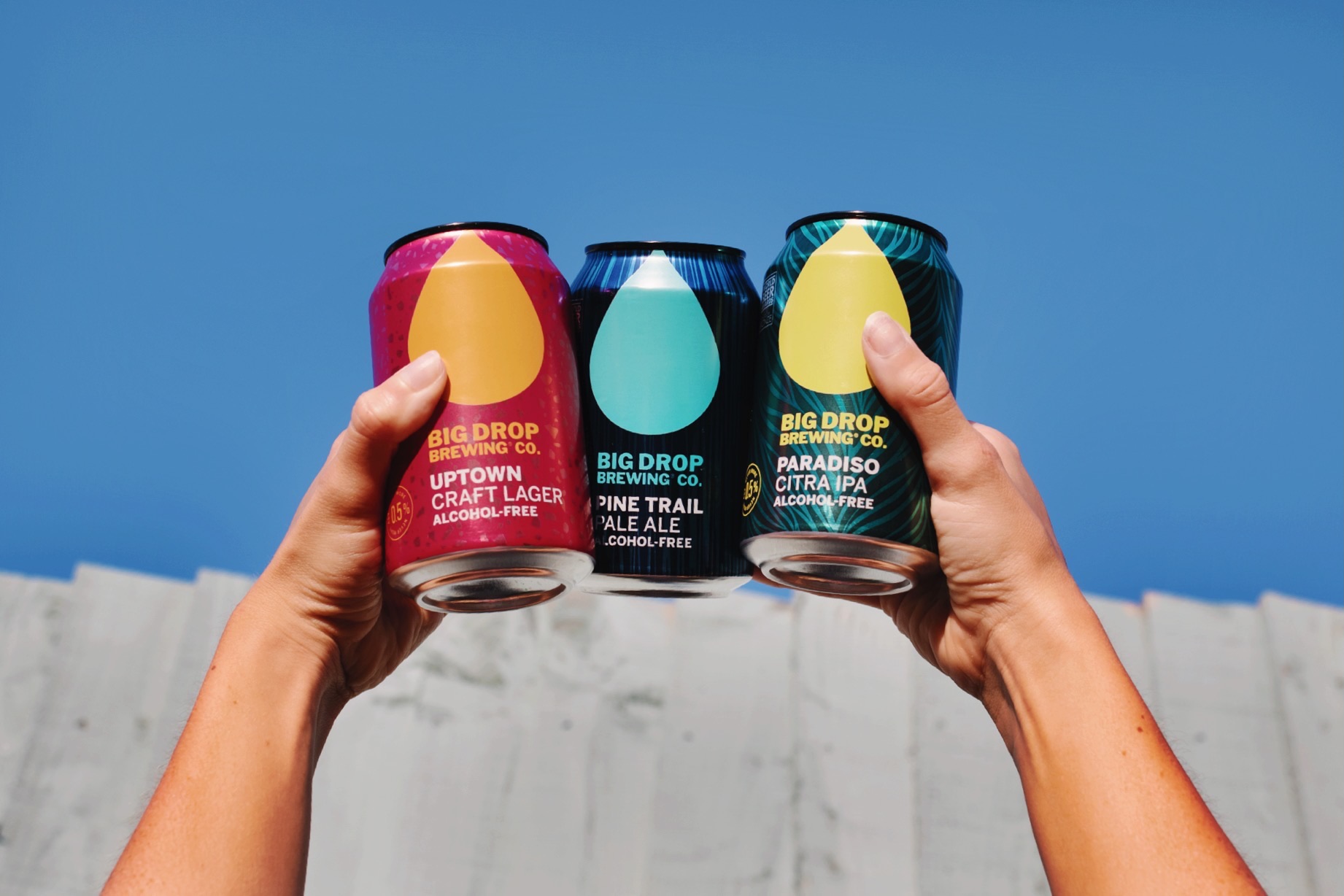
Big Drop
So, how about 2020? “Overall alcohol sales actually fell in 2020, while the AF category grew by a third and our volume pretty much doubled to 1.8 million cans and bottles.” Before the first lockdown, they didn’t sell to the home-drinker, but their online store now makes up a third of sales. It was a year of huge change for Rob: “Perhaps the biggest surprise of the year, however, was the level of interest for Big Drop via Milk & More. We began supplying the next-day doorstep delivery service at the end of 2019 and watched as demand sky-rocketed from the growing numbers of stay-at-home shoppers.”
And so, as it leaves us parting ways once again, I can only encourage you to get back out to your local beauty community – when the time is right. Visit your nearest high-street counter, book your wax, plan your haircut and dream about your nails, massage and facial. Book in advance, let them know of any changes with as much notice as possible, and get back into your routine of regular appointments. I can safely say that, as an industry, we will be working hard and can’t wait to see you all as soon as possible. We have missed you!

